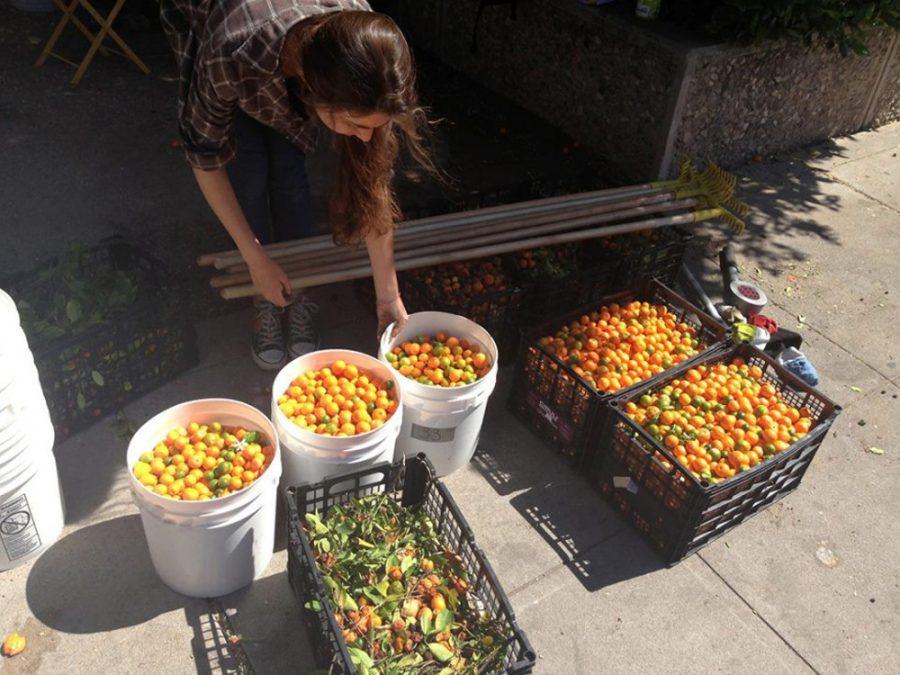Students and volunteers are invited to participate in the first citrus harvest of the semester today at Slonaker House from 2-4 p.m.
“We take food that is naturally grown on campus and make sure it doesn’t all go to waste,” said Erana Loveless, graduate event coordinator.
Both UA Linking Edible Arizona Forests and Iskashitaa Refugee Network are working together to harvest citrus fruit grown on campus.
“The purpose of the harvest is to educate the community about the different edible fruits there are and hopefully promote them to start taking advantage of all the wonderful produce we have on campus,” LEAF member Alyssa Los said.
Loveless said that everyone has their own “inner motivation” for what they want to do. For some individuals, that motivation is to prevent the waste of food, while others are interested in creating a more sustainable campus.
“We will be harvesting lots of citrus, specifically sour seville oranges, sweet oranges and calamondin limes,” Los said. “They are perfectly ripened, and we can’t wait to take advantage of all the beautiful citrus on campus.”
The main recipients of the harvested fruit will be the Iskashitaa Refugee Network.
“Iskashitaa Refugee Network is an amazing organization we have been partnering with where lots of refugees from all over the country come to America to start new,” Los said. “Our harvests give them fresh fruit to help make their transition easier.”
Los added that the partnership is important, because they teach us about their native fruit and how to harvest it. In return, she said they try to introduce them to elements of American culture in hopes of them learning more about the U.S.
Iskashitaa Refugee Network, according to its website, is an organization that works to rebuild the lives of refugees through “unique programs designed to empower the refugees.” These programs emphasize sharing and practice of the English language.
“LEAF … is a program that allows the community to get involved with planting, conserving, and using edible trees in Arizona,” LEAF’s website states. “LEAF on the UA Campus is a cooperative extension of this statewide program that focuses on creating harvesting programs on the University of Arizona Campus.”
According to the website, the UA main campus has close to 8,000 trees. Of these 8,000, around 1,800 produce items that are edible, such as fruit, olives and nuts.
Throughout the year, Iskashitaa and LEAF partner to harvest olives and pomegranates as well.
“Harvesting is so important, because not only are we giving back to the community, but we are also taking advantage of this beautiful campus and all it has to offer us,” Los said. “It is a great educational experience, as we are able to teach others on the wonderful benefits of all the plants here.”
Loveless added that they welcome anyone who is interested in harvesting and encourages them to come to an event or contact her for more information. For anyone who may want to partner, she is always looking to expand projects as well.
“It’s a great opportunity to learn about harvesting as well as [give] back to the community,” Los said.
_______________
Follow Chastity Laskey on Twitter.









